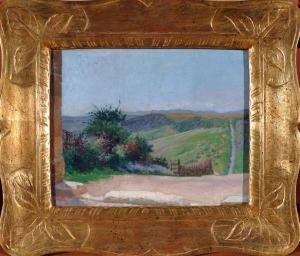Giuseppe Micali Paintings
Giuseppe Micali was an Italian historian and antiquarian, recognized for his contributions to the understanding of ancient Etruscan civilization. Born in Livorno, Italy, in 1769, Micali's interest in antiquities was sparked at a young age, fostered by the rich Etruscan heritage in Tuscany.
Micali's most significant work is 'Storia degli antichi popoli italiani' (History of the Ancient Italian Peoples), published in 1832. In this comprehensive study, he delved into the origins, customs, and art of the ancient inhabitants of the Italian peninsula, with a particular focus on the Etruscans. His research was based on a meticulous examination of archaeological findings, numismatics (the study of coins), and ancient texts. Micali's work was pioneering for its time, as it sought to systematically document and analyze the evidence of Etruscan culture, which before then was often misunderstood or not thoroughly studied.
Giuseppe Micali's contributions are significant because they came at a time when the field of archaeology was still in its infancy. His efforts helped lay the groundwork for future studies and provided a foundation for the academic discipline of Etruscology, the study of the Etruscan civilization. While some of his theories and conclusions have been revised or refuted by subsequent scholarship, his dedication to understanding Italy's ancient past and his methodological approach to the study of material culture remain influential.
Giuseppe Micali passed away in 1844, leaving behind a legacy as a pioneer in Italian archaeological and historical studies. His works continue to be referenced and studied by scholars interested in the ancient history of Italy and the Mediterranean world. Micali's life was dedicated to uncovering and preserving the rich tapestry of Italy's ancestral cultures, and his impact on the field of ancient history is still felt today.






